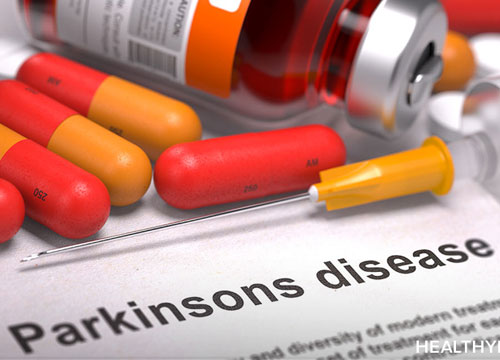Welcome To Neumed Center For Neurology
𝐏𝐚𝐫𝐤𝐢𝐧𝐬𝐨𝐧’𝐬 𝐃𝐢𝐬𝐞𝐚𝐬𝐞 𝐓𝐫𝐞𝐚𝐭𝐦𝐞𝐧𝐭 𝐢𝐧 𝐁𝐡𝐮𝐛𝐚𝐧𝐞𝐬𝐰𝐚𝐫
Parkinson’s disease is a progressive neurological disorder that affects movement control. It is caused by the degeneration of nerve cells in the brain, leading to reduced dopamine levels—a chemical essential for smooth and coordinated muscle activity. The condition typically begins with mild symptoms and gradually worsens, impacting walking, speaking, and daily functioning.
𝐒𝐲𝐦𝐩𝐭𝐨𝐦𝐬 𝐨𝐟 𝐏𝐚𝐫𝐤𝐢𝐧𝐬𝐨𝐧’𝐬 𝐃𝐢𝐬𝐞𝐚𝐬𝐞
Parkinson’s is primarily characterized by motor dysfunction, but it also affects cognitive and emotional health. Common symptoms include:
. Bradykinesia (slowed movements)
. Tremors (rhythmic shaking at rest)
. Muscle stiffness (lead-pipe or cogwheel rigidity)
. Postural instability and balance issues
. Speech difficulties and swallowing problems
. Loss of smell
. Sleep disturbances
. Depression, anxiety, and concentration issues
𝐂𝐚𝐮𝐬𝐞𝐬 𝐚𝐧𝐝 𝐑𝐢𝐬𝐤 𝐅𝐚𝐜𝐭𝐨𝐫𝐬
While the exact cause is unknown, several factors contribute to Parkinson’s disease:
. Age-related degeneration (typically over 60)
. Genetic predisposition or family history
. Idiopathic Parkinson’s (protein processing irregularities)
. Brain inflammation (encephalitis)
. Exposure to toxins or chemicals
. Head injuries or trauma
. Certain medications
𝐃𝐢𝐚𝐠𝐧𝐨𝐬𝐢𝐬 𝐚𝐧𝐝 𝐓𝐞𝐬𝐭𝐢𝐧𝐠
There is no single test to confirm Parkinson’s disease. Diagnosis is based on:
. Detailed medical history
. Neurological examination
. Imaging tests such as MRI, PET scans, or brain ultrasound to rule out other conditions
𝐓𝐫𝐞𝐚𝐭𝐦𝐞𝐧𝐭 𝐎𝐩𝐭𝐢𝐨𝐧𝐬
Although there is no cure, Parkinson’s disease can be effectively managed with medication and supportive therapies. The most widely used treatment is:
. 𝐋𝐞𝐯𝐨𝐝𝐨𝐩𝐚, a natural chemical that converts to dopamine in the brain
. 𝐂𝐚𝐫𝐛𝐢𝐝𝐨𝐩𝐚, which prevents premature conversion of levodopa outside the brain, reducing side effects
Additional therapies may include physiotherapy, speech therapy, and lifestyle modifications
At 𝐍𝐞𝐮𝐦𝐞𝐝 – 𝐓𝐡𝐞 𝐂𝐞𝐧𝐭𝐞𝐫 𝐟𝐨𝐫 𝐍𝐞𝐮𝐫𝐨𝐥𝐨𝐠𝐲, 𝐁𝐡𝐮𝐛𝐚𝐧𝐞𝐬𝐰𝐚𝐫, expert neurologist 𝐃𝐫.𝐀𝐤𝐡𝐢𝐥𝐚 𝐊𝐮𝐦𝐚𝐫 𝐏𝐚𝐧𝐝𝐚 provides advanced care for Parkinson’s disease. With modern diagnostic tools, personalized treatment plans, and a compassionate approach, Neumed is a trusted destination for neurological care in Odisha.


